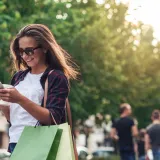
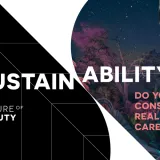
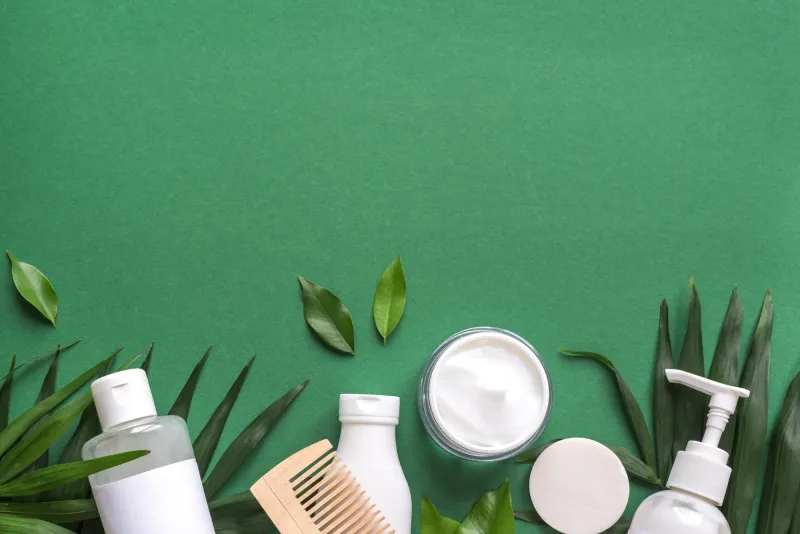
Sustainability in health & beauty – five brands making a difference
Sustainability has become the beauty buzzword in recent years. We look at the brands, big & small, making waves
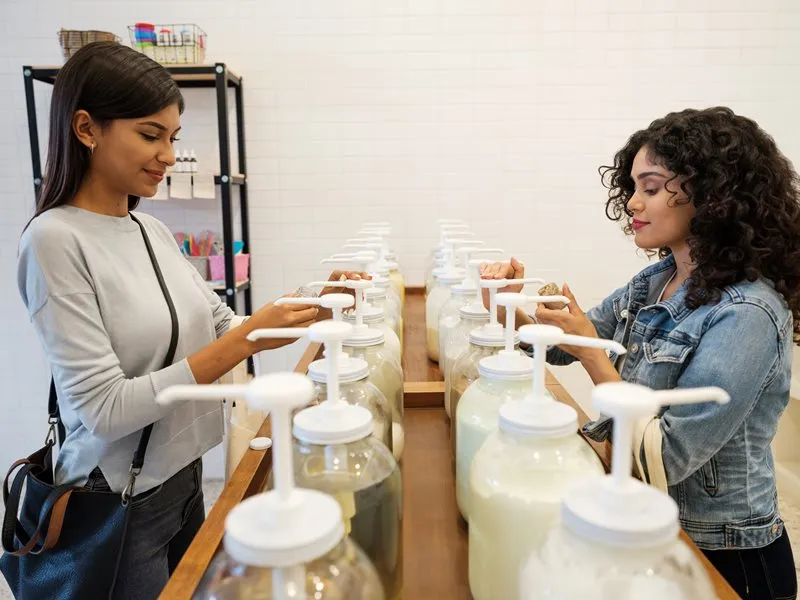
Following television programmes like Blue Planet, there has been a monumental shift in consumer awareness around sustainability. Whether it’s the ingredients use, their carbon footprint or the amount of packaging waste; consumers’ interest in sustainability is fuelling a drive from health, beauty and personal care brands to build a greener ethos into their brands.
So, we decided to look at five beauty brands leading the way for the sector in sustainability.
REN Clean Skincare
REN have been on quite the journey over the last couple of years, even changing their name to REN Clean Skincare. Already creating clean, naturally derived ingredients, in 2018 they made their sustainability pledge, focusing on packaging. Their goal? To use only packaging that is recycled, recyclable and reusable by 2021.
They have adopted the tag ‘Clean to Skin. Clean to Planet’, but REN say “there’s no quick-fix solution to sustainability, but constant research and innovation with our likeminded suppliers is making sure we get it right, being proud to offer premium clean skincare that’s packaged for the planet.”
Little steps have made a big difference to this skincare brand. REN are now cleaning up the beaches by using reclaimed ocean plastic wherever possible to keep as much out of the environment and in the recycling loop as they can. They have also made the switch to biodegradable films on their gift boxes and use recycled zips on their gift bags.
REN was also one of the first brands to work with TerraCycle’s Loop program, a never-before-seen venture to combat single-use waste by creating a circular economy. REN pioneered a program with Loop to give consumers six of their bestselling Clean to Skin formulars in refillable packaging.
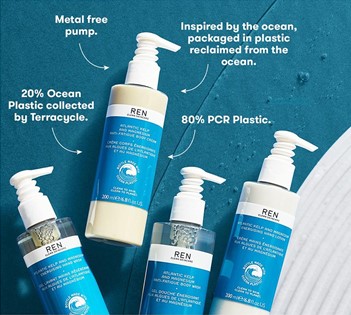
UpCircle Beauty
From the beginning, UpCircle Beauty set out to put waste-fighting and the circular economy at the heart of their brand. Co-founder brother & sister duo, William & Anna, use waste ground coffee beans and turn them into award-winning handmade face & body scrubs and serums.
Realising how much they were throwing away from a cafetière of coffee every morning, they wondered how much was going to waste from coffee shops all over London.
The answer was a lot.
Knowing the benefits of coffee on skin, the pair found that brewed coffee grounds have higher levels of anti-oxidants than fresh coffee. So, in 2016 they created their coffee-based skincare concept.
Today they pick up 350kg of fresh coffee grounds each day from over 100 partners across the city and turn them into handmade face & body scrubs and serums the next day. As an example, the leftover grounds of three espressos go into making one of their facial scrubs. And it’s not just coffee grounds; they use residual chai tea spices that smell amazing as the core natural fragrance in their soap bars.
COSMOS-approved, 100% natural, vegan friendly with no SLS, SLEs, palm oil, silicones, parabens, mineral oil, parfum or sulfates in their ingredient lists, UpCircle Beauty has sustainability at its core.
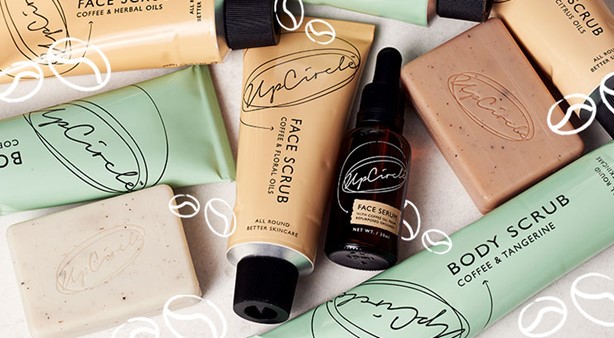
Garnier Ultimate Blends
Sustainability advances have traditionally been easier for smaller brands and start-ups, without huge corporations or complex supply chains behind them. But one mammoth of the beauty world is bucking the trend.
Over the last few years, Garnier has been on a mission to incorporate sustainability into the core of its Ultimate Blends brand. The Garnier website states: “We have the opportunity to help create a positive impact by leading the way to sustainable beauty that's accessible to all.”
Ultimate Blends centres around four key pillars - vegan formulas, natural ingredients, ethical sourcing and being 100% recyclable. For example, their argan oil comes from a women’s co-operative in Morocco, and their coconut milk is cultivated from renewable sources in French Polynesia.
Ultimate Blends latest innovation is Shampoo Bars. Although the concept of waterless formulas have been around for a while, Garnier is the first mainstream brand to bring this innovation to the masses. When used with water, these solid shampoo bars become foamy, nourishing to hair and, according to Garnier, are 94% plant-based with zero plastic waste.
“We have the opportunity to help create a positive impact by leading the way to sustainable beauty that's accessible to all.”
From Pull’s own Future of Beauty research, we know consumers want to do the right thing when it comes to sustainability, but not at the detriment of quality, end results or affordability. Only time will tell if Garnier is on to a winner with waterless formulations.
Although Garnier is making impressive inroads when it comes to their Ultimate Blends and hair care, the same cannot be said for the rest of its portfolio. For example, Garnier are still selling non-biodegradable cleansing wipes, although they are now offering reusable Micellar Eco Pads for removing make-up. And their sun protection brands like Ambre Solaire are not reef safe, meaning harmful chemicals like oxybenzone and octinoxate (UV-blocking chemicals) are washed off into the ocean, causing harmful coral bleaching which leaves the coral susceptible to disease and reefs in danger of dying.
Hopefully the rest of the Garnier portfolio will take notice of Ultimate Blends and start to move in same direction.
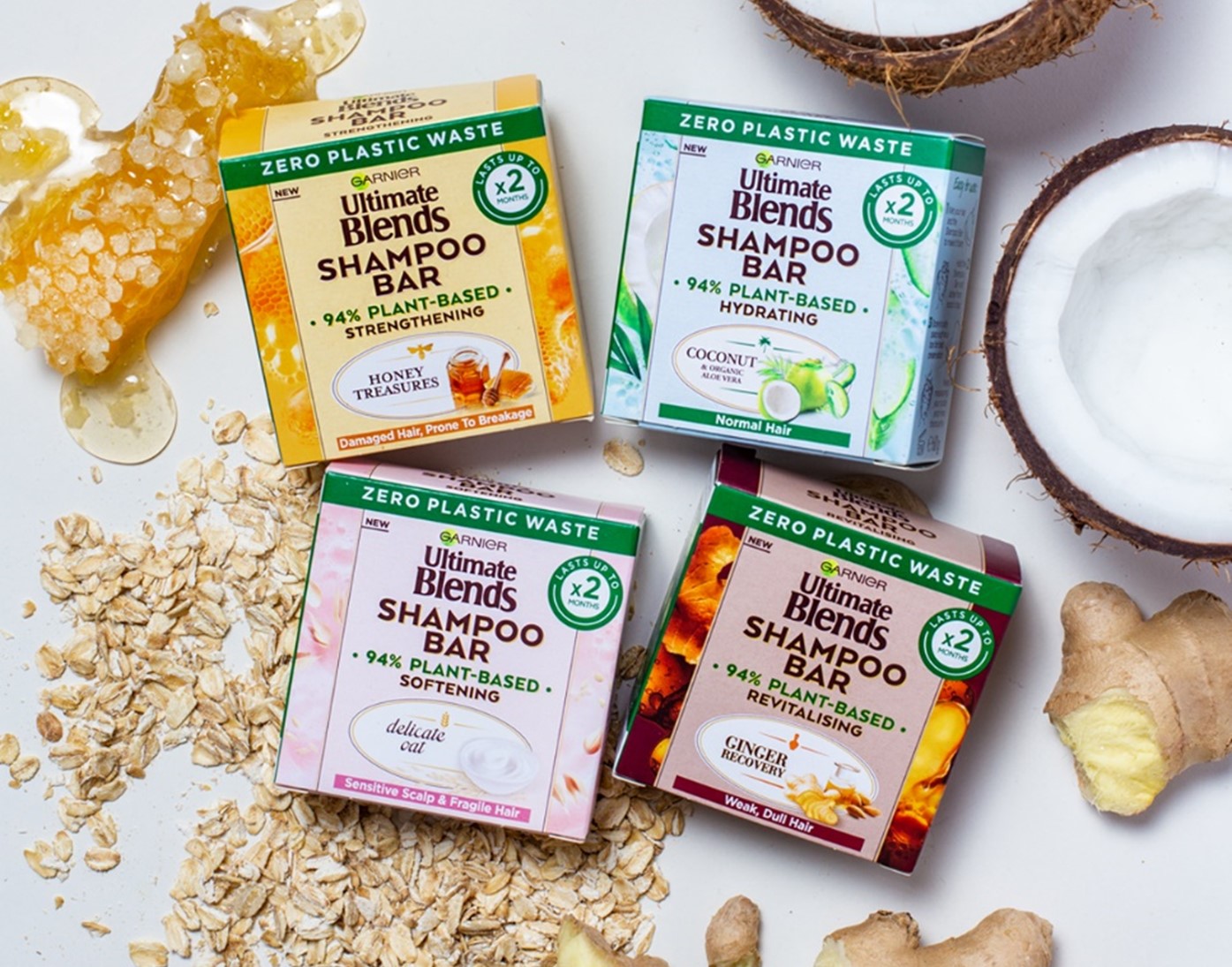
Barnaby’s Brushes
With 4.7 billion plastic toothbrushes thrown away every year worldwide, Barnaby Birkbeck saw the volume of plastic floating in our oceans and thought there must be a more sustainable way.
A plastic toothbrush should be replaced ever 3-4 months, when it is then thrown away, never to biodegrade. In fact, every toothbrush you have ever used in your lifetime is still on earth today. All these toothbrushes end up in the world’s landfills or oceans. According to the United Nations, as statistics currently stand, eight million tonnes of plastic is predicted to be making its way into our oceans each year. A trend, which if continued, will mean we’ll have more plastic in our oceans than fish by 2050.
So, in 2018 Barnaby’s Brushes was born, using beautifully moulded stainless steel handles with interchangeable bamboo heads. Bamboo toothbrushes aren’t a new concept but with Barnaby’s Brushes you get a toothbrush which is beautifully designed and which you can keep for the rest of your life. Just disposing of the head, rather than the whole bamboo brush, also reduces waste, with the bamboo decomposing within six months.
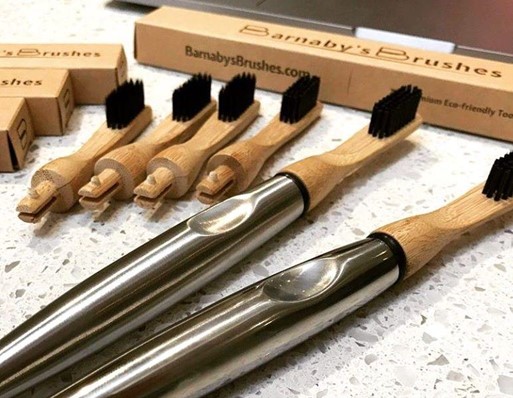
Beauty Kitchen
Beauty Kitchen are a beauty and personal care brand with sustainability built right into the heart of all they do. Their mission is to create the most effective, natural, and sustainable beauty products in the world. No small feat, but they pride themselves on producing products for people who want to make more sustainable choices.
With over 95% of beauty packaging thrown away after just one use in the UK, they are determined to make change. Creating their own circular economy, Beauty Kitchen have pioneered a ground-breaking RETURN • REFILL • REPEAT programme, where they wash and reuse packaging as it's far better than recycling.
“Sustainability isn’t a trend, it’s here to stay. Now is the time to make change, shake-off the rule book, go back to basics and completely rebuild towards a better future.”
Partnering with Holland & Barrett, empty Beauty Kitchen products with the ‘Return, Refill, Repeat’ logo can be returned directly instore, and consumers rewarded with Holland & Barrett loyalty card points. Likewise, consumers can return products by post for free.
In addition to their Return, Refill, Repeat programme, Beauty Kitchen are a certified B Corp, vegan, and have been awarded the Leaping Bunny certification for being cruelty-free. They use 100% natural ingredients and minimal, sustainable packaging, as well as using their profits for good by giving back to charities like Plastic Soup Foundation.
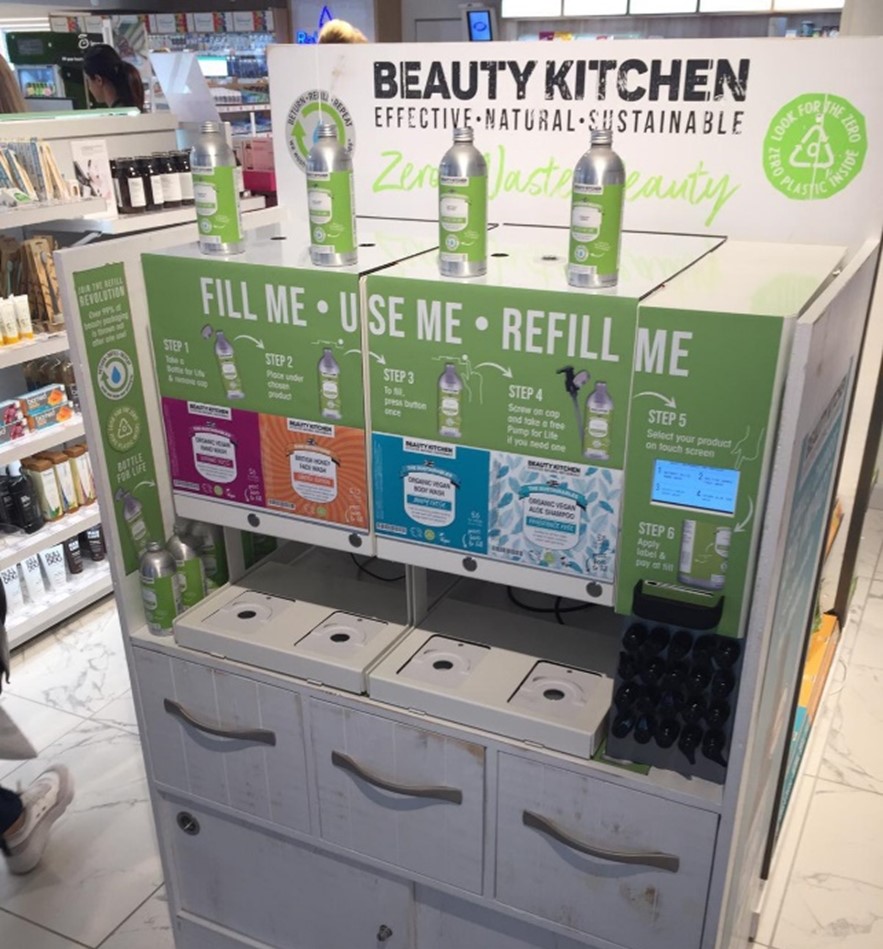
It’s clear consumers want to do the right thing when it comes to sustainability. With savvy shoppers becoming more and more aware of what they consume and use. Sustainability is now becoming a hygiene factor for brands, a base level of expectation from consumers. It is no longer a point of difference or differentiation for brands. And those brands who don’t see sustainability as a priority will get left behind.
Posted 1 February 2021